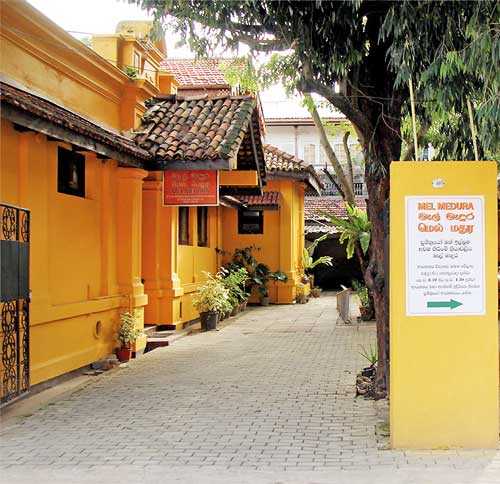Tuesday Feb 24, 2026
Tuesday Feb 24, 2026
Thursday, 9 August 2018 00:00 - - {{hitsCtrl.values.hits}}
When it was realised that over 30% of suicides are linked to alcohol and drug addiction, the Sumithrayo Drug Demand Reduction Program (Mel Medura) was set up in 1984. Since then Mel Medura has been in the forefront of rehabilitating those with difficulties arising from the misuse and abuse of alcohol and other drugs.
Now Mel Madura is opening its doors to welcome people who need help with behavioural addictions. These include smartphones and other digital devices, internet, video games, pornography, social networking and gambling.
Addiction occurs in many forms and for someone to be diagnosed with an addiction related disorder the presence of physical dependence characterised by high (or low) tolerance levels and withdrawal symptoms is a requirement.
Behavioural addiction can however occur with all the negative consequences in a person’s life but without the physical issues faced by people who compulsively engage in drug and alcohol abuse. It is this compulsive nature of behaviour that is often indicative of a behavioural addiction. Behavioural addictions are usually preceded by feelings of tension or arousal before and pleasure, gratification, relief, guilt or remorse afterwards.
The failure to resist an impulse, drive, or temptation to perform an act that is harmful to the person or to others is the essential feature of behavioural addictions. All behavioural addictions are characterised by a recurrent pattern of behaviour that has this essential feature within a specific domain.
The repetitive engagement in these behaviours ultimately interferes with functioning in other domains. In this respect, the behavioural addictions do resemble disorders caused by substance use. Individuals with substance addictions also report difficulties in resisting the urge to consume alcohol or use drugs.
Smartphones rival real-life companions since they can produce a never ending stream of interesting things to listen to and watch. Our short attention span lifestyles are training us to seek new information at every moment so phones with those constant news updates are more engaging than face-to-face conversations and this can result in fractured relationships. Each time you get a Like on social media or some reward in a game a little dopamine is injected into the reward centre of your brain. So like smoking a cigarette – you want to have it again.
Video game addiction may seem relatively harmless when compared to substance addiction because many people can play video games without ever developing a problem. However, compulsive video game play can interrupt a person’s ability to connect positively with others and have healthy relationships, maintain responsibilities at work, and make choices that support their physical and mental health (e.g., eating regularly or healthily, going to the doctor, etc.). Ultimately, they may end up completely isolating themselves from the real world, losing their ability to function, be with family, and achieve any goals outside of the video game world.
As in internet addiction, many people are compulsively using social media. They are posting the minutest details of their life, spending hours taking photos to post on Instagram, editing videos to upload to YouTube, updating their posts on Twitter and Facebook, and instantly responding to others on those same social media forums. Unfortunately, it can mean that they do not make positive in-person connections and may ultimately reduce their options in life.
Social media use can lead to addiction if it is compulsive and disruptive to the person’s ability to function in everyday life. Chronic social media use can contribute to anxiety in users who often describe feelings of discomfort and agitation if they are unable to connect – an issue that could potentially be termed a withdrawal symptom.
Porn addiction shares many of the same characteristics as a substance use disorder. One of the important criteria in defining an addiction is the development of tolerance to the addictive substance. Over time, a porn addict may require more frequent and increasingly explicit porn to experience the same high or excitement as he or she originally did. Compulsive viewing of pornography can lead to the cycle of addiction, which involves a craving stage where the individual is preoccupied or anticipating the viewing of porn.
This is followed by actively viewing porn and then experiencing a negative emotional state, where the individual can become irritable or hostile. If left untreated, porn addiction can lead to broken or troubled intimate relationships, feelings of shame and guilt, problems with work or school, job loss, financial troubles, and divorce. Many porn addicts also suffer from other mental health issues, such as alcohol or substance use disorders, and mood disorders.
A bio psychosocial approach is what Mel Medura strives to focus on and implement. Emphasis is on respect, focus is on strengths, the importance of personal choice, and self-determination of goals, all of which are crucial for the person struggling with substance and behavioural addictions. The service is delivered in a personal and engaging style where clients leave feeling hopeful and good about themselves while looking forward to coming back for future sessions.
The Mel Medura Service is Free. Contact: Mel Medura – 60 Horton Place Colombo 7. Tel: 2694665, 2693460.